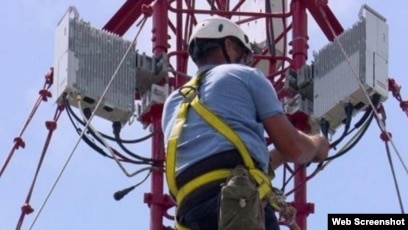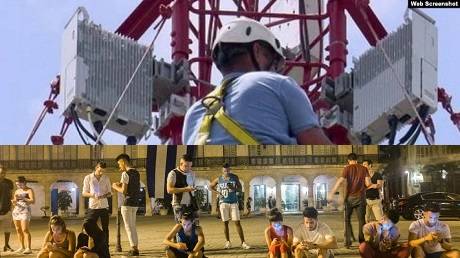Castroism expands control over the Internet. New decree law will allow the dictatorship greater control over the internet, social networks and communications.
The Cuban regime will strengthen its control over the Internet and social networks with the approval of a new decree-law that will allow it to regulate new technologies and communication.
The National Assembly approved the legal norm, called "On Telecommunications, Information and Communication Technologies, and the Use of the Radioelectric Spectrum", which will impose a legal framework to "counteract radioelectric and cyberspace aggressions".
"Bearing in mind that the National Assembly of People's Power is not a sovereign body, since it depends on the guidelines of the Communist Party of Cuba and acts accordingly and that, unfortunately, its function has not been, throughout its history, to legislate in favor of the people, but to satisfy the interests of the party elite, it would not be surprising that this new decree law contemplates more restrictions for citizens regarding the use of the networks", lawyer and independent journalist Roberto de Jesús Quiñones Haces told Radio Televisión Martí.
The Minister of Communications, Jorge Luis Perdomo Di-Lella, said that the legislative text establishes the applicable provisions, according to "treaties and other international legal instruments subscribed by the Government".

ETECSA monopoly worker.
"Evidently they intend to restrict the proven effectiveness of information and communication technologies through the Internet because in Cuba they are already managing to summon and unite citizens, as has been seen in recent events in Havana," said journalist and former prisoner of conscience Quiñones Haces.
Perdomo Di-Lella affirmed that the legislation will contribute to national security and defense, internal order and civil defense; and to "defend the achievements" attained by the socialist state.
"It cannot be overlooked that the use of networks and the socialization of the ideas disseminated therein with respect to pressing current issues, is becoming a novel and increasingly important phenomenon in Cuba. So I do not doubt that these aspects to which the Minister of Communications alludes seek to further restrict the rights of citizens," the lawyer lamented.
The government's concern about the scope of Internet access became palpable with the implementation of Decree Law 370 "On the Informatization of Society in Cuba", in force since July 4, 2019.
In this regard, the Editorial Chief of the newspaper 14yMedio, Reynaldo Escobar, indicated that 370, "somehow referred to social networks and that no one can be putting whatever they want in their space, because they can be penalized."
"If it was about protecting the Internet, so that from nowhere they can hack the spaces on the Internet or so that there is not something that harms the transmission of data, well, welcome, but we all know that it is something aimed at censoring divergent opinions in social networks and in all the spaces that people are using, especially on Facebook, which has become a threat to the Cuban government," the journalist stressed.
Other legal agreements related to state enterprises and social security were also unveiled.
"All this happens four days before the Eighth Congress of the Communist Party, where it is understood that extraordinary measures will be announced to face the situation in which the country finds itself", concluded Escobar.
The web page of the Cuban Parliament informed that the decree-laws will be published soon in the Official Gazette.
Author: Yolanda Huerga


